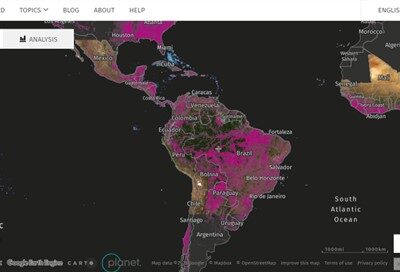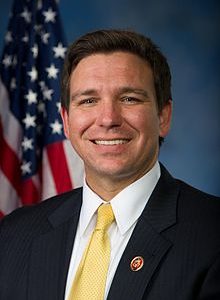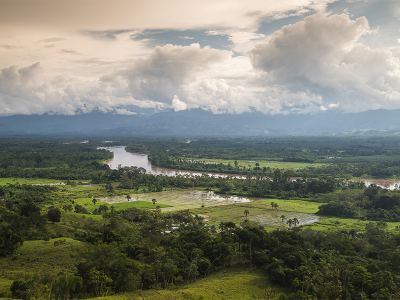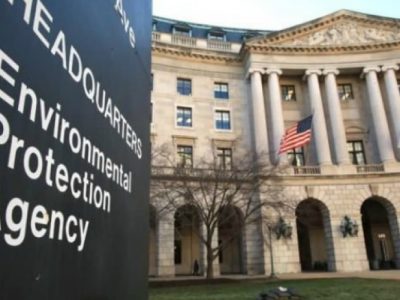Ecosystems
Measuring Tropical Forests and Deforestation from Space
Remote sensing is one important tool in the toolbox of forest governance for monitoring, measuring, and reducing deforestation
In a world where a swipe on a smart phone enables navigation from one part of the globe to another, many technology companies, investors, environmental organizations, community groups, and policymakers are looking to remote sensing data and platforms to increase transparency, accuracy, speed of decision-making, and reduce costs of monitoring land-based activities at scale. Advancements …
Continue reading “Measuring Tropical Forests and Deforestation from Space”
CONTINUE READINGA decade of unraveling the effects of regulation on water innovation
By Michael Kiparsky, with Dave Smith, Nell Green Nylen, Luke Sherman, Alida Cantor, Anita Milman, Felicia Marcus, David Sedlak, Bernhard Truffer, Christian Binz, Sasha Harris-Lovett, Jeff Lape, Justin Mattingly, Dave Owen, Lars Tummers, Buzz Thompson
In a recent post, my colleagues and I reported on our most recent research output in a long series of projects examining the effect of regulation on water innovation. The post describes a new framework for understanding and, ultimately, improving relationships between regulators and wastewater utility managers who are seeking to implement novel technical solutions, …
Continue reading “A decade of unraveling the effects of regulation on water innovation “
CONTINUE READING“Fully Protected” No More?
Newsom’s infrastructure package makes a big change for California species protection
Last week, the Newsom administration announced a budget trailer bill package it said was designed to facilitate the deployment of historic federal infrastructure funding for climate-friendly projects. The package consists of 11 separate trailer bills, dealing with a variety of topics ranging from the California Environmental Quality Act (CEQA) to state contracting rules. Unsurprisingly, the …
Continue reading ““Fully Protected” No More?”
CONTINUE READINGSupreme Court Allows Major State, Local Government Climate Change Litigation to Proceed on Merits
Justices Decline to Intervene in Government Lawsuits Seeking Damages from Fossil Fuel Industry
This week the U.S. Supreme Court gave state and local governments a big–if preliminary–legal win against the fossil fuel industry. The justices declined to take up numerous cases in which government entities have sued oil, gas and coal companies, seeking compensation for the climate change-related damage the jurisdictions they claim to have suffered, and which …
CONTINUE READINGNot The Winds Of Change We Wanted
Bombay’s recent air quality crisis shows us our future
For several years, India’s capital of Delhi has been synonymous with awful air quality: just living there is the equivalent of smoking nearly 2,000 cigarettes a year. So it shocked me when the Indian Express reported that last week, Bombay’s air was even worse than Delhi’s. Delhi’s AQI last week was an abysmal 263; but …
Continue reading “Not The Winds Of Change We Wanted”
CONTINUE READINGDeSantis and the Environment
A Little Bit of Nepotism and a Lot of Everglades Protection.
Compared to Donald Trump, Ron DeSantis is practically a Greta Thunberg on environmental issues. Of course, by the same token, I’m practically a Steph Curry on the court compared to Danny DeVito. Sarcasm aside, DeSantis is pretty good on environmental issues for a Republican. But he rarely mentions climate change, and his record on renewable …
Continue reading “DeSantis and the Environment “
CONTINUE READINGBrazil: Presidential Election, Saving the Amazon, and Combating Climate Change
Views from the Governors’ Climate and Forests Task Force
By Jason Gray and Colleen Scanlan Lyons Co-Project Directors, GCF Task Force Yesterday, the people of Brazil had a historic vote in favor of returning President Luiz Inácio Lula da Silva (Lula) to power. Lula, who served as President of Brazil from 2003 to 2010 (and is the first President in Brazil to return for …
Continue reading “Brazil: Presidential Election, Saving the Amazon, and Combating Climate Change”
CONTINUE READINGGCF Task Force Exchange of Experiences in San Martin, Peru
Notes from the Field
From October 10-13, 2022, the Governors’ Climate and Forests Task Force (GCF Task Force) – a project of the Emmett Institute on Climate Change and the Environment at UCLA School of Law and UCLA’s Institute of the Environment and Sustainability, in partnership with the Institute of Behavioral Science at the University of Colorado, Boulder – and …
Continue reading “GCF Task Force Exchange of Experiences in San Martin, Peru”
CONTINUE READINGHow Much Is Nature Worth?
Federal Government Launches Major Accounting Initiative
When we bite into a juicy apple we may think of the farm’s orchard, but not of the natural pollinators that fertilize the apple blossom so the fruit can set. When we drink a cool glass of water from the tap we may think of the local reservoir, but the real source of the water …
Continue reading “How Much Is Nature Worth?”
CONTINUE READINGWhat the Supreme Court Left Standing
No, the Court didn’t eliminate EPA’s ability to fight climate change.
The Supreme Court’s ruling in the West Virginia case left many people with the impression that it eliminated the government’s power to regulate carbon emissions. There are quite a number of areas of climate law that the Supreme Court has left untouched. Here’s the EPA authority the Court hasn’t touched: EPA’s jurisdiction over greenhouse gases. …
Continue reading “What the Supreme Court Left Standing”
CONTINUE READING











